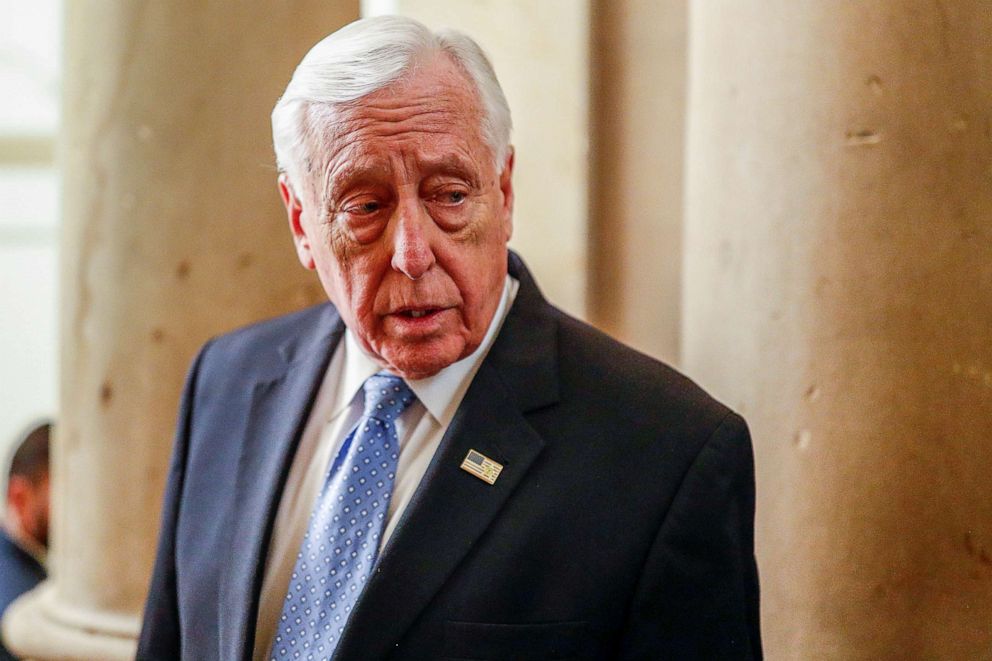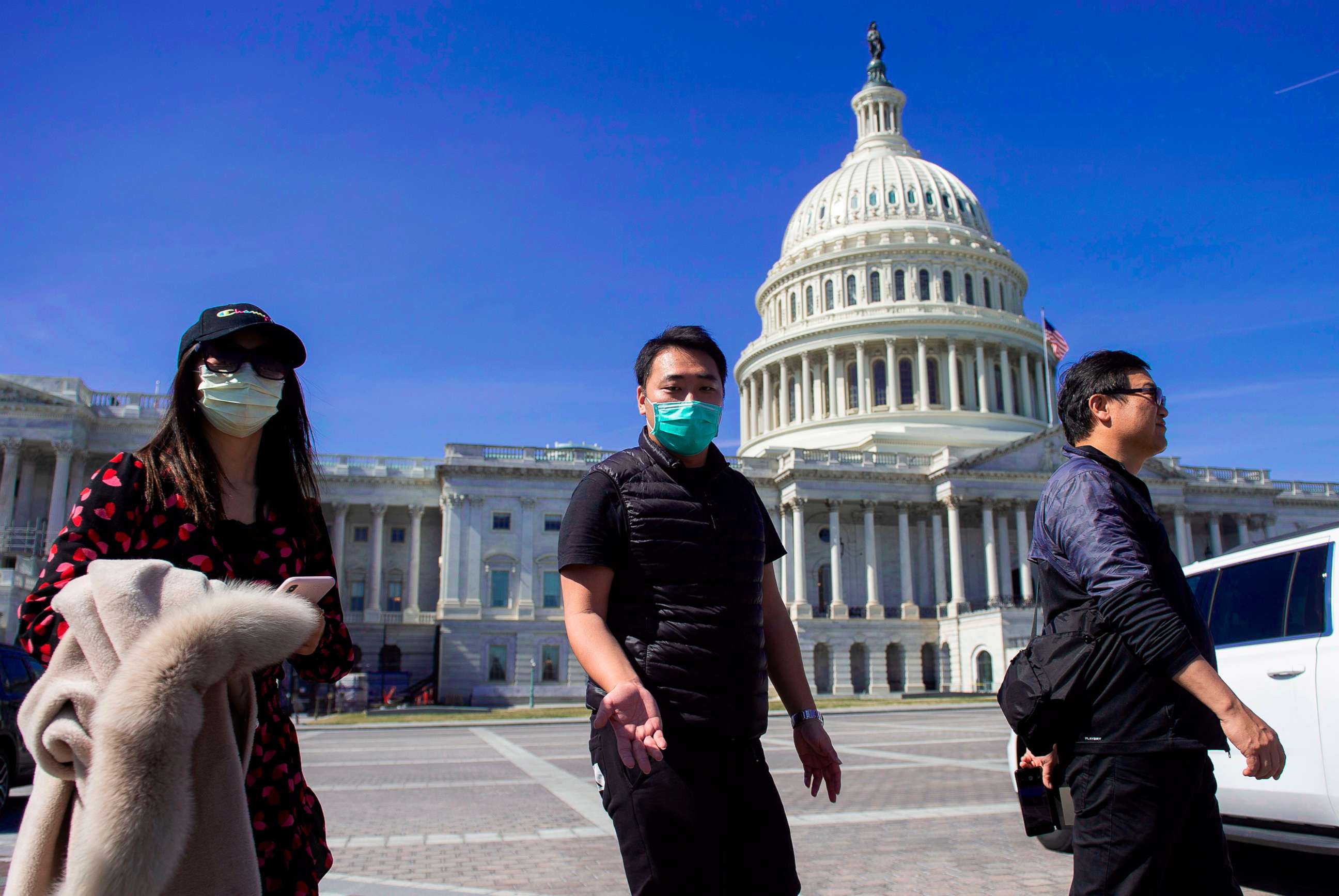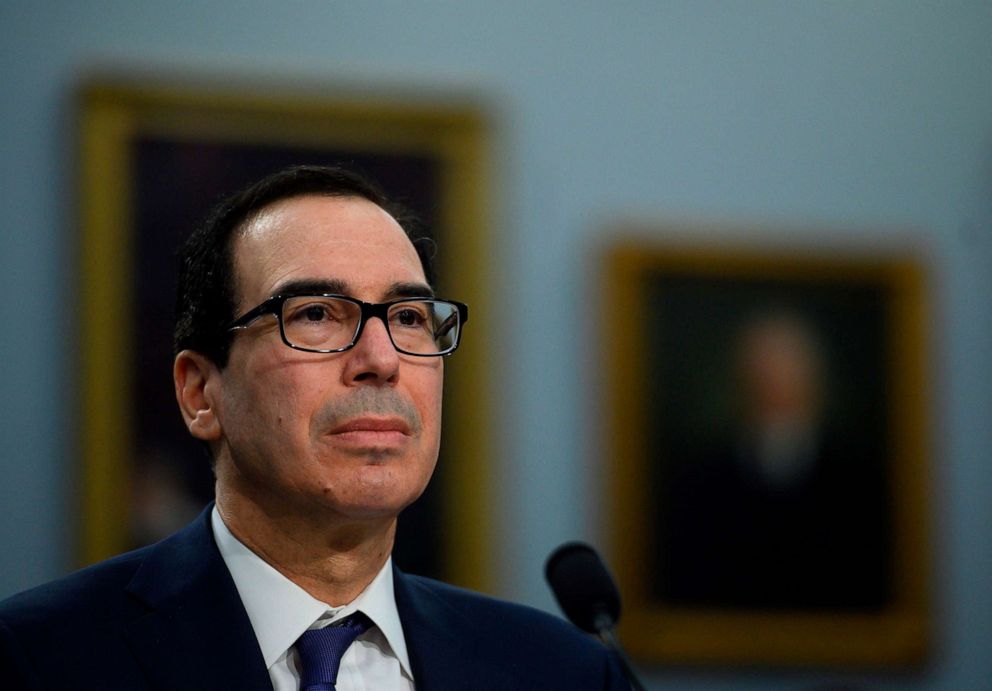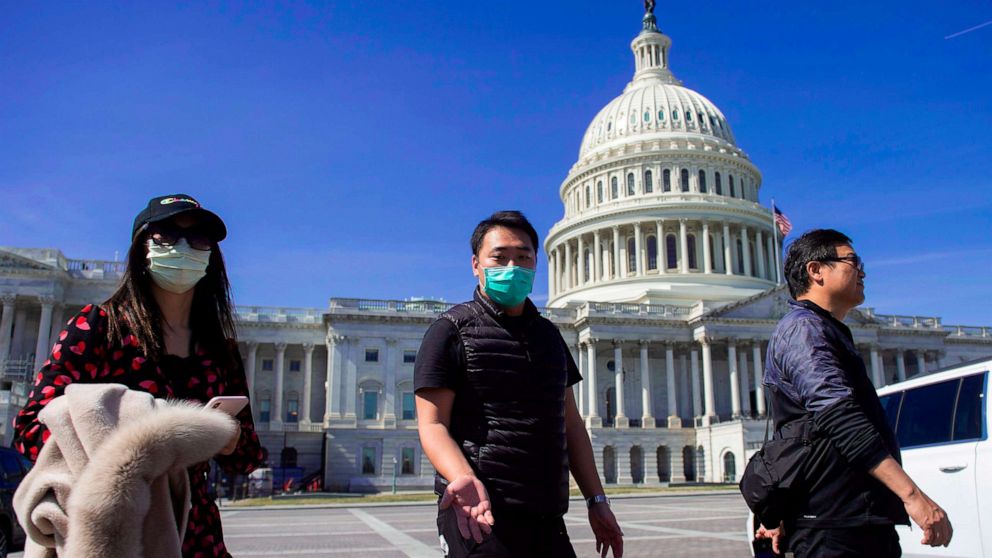House Democrats rush to finalize bill to address economic pain of coronavirus outbreak ahead of recess

House Speaker Nancy Pelosi and Democratic leaders are scrambling to finish crafting a bill to address the economic consequences of the novel coronavirus, with a vote possible as soon as Thursday -- just before lawmakers recess for 10 days.
"We don't want to panic, but on the other hand, nor do we want to give any impression that this is not a major, critical health challenge confronting us that we need to handle responsibly," House Majority Leader Steny Hoyer told reporters in his Capitol Hill office Wednesday morning. "Tomorrow we're going to be addressing -- and I'm sure in the future addressing -- the economic consequences to individuals and trying to assure that they don't fall through the cracks."
As the number of infected Americans continues to grow exponentially, Hoyer said congressional leaders are still weighing whether to close the U.S. Capitol to the public.

"We haven't yet come to grips with whether or not we ought to close down the Capitol in terms of visitors, but that certainly is something that we'll have to consider and that may be a step we need to take," Hoyer, D-Md., said, acknowledging the alarm created when someone simply coughs. "It’s a step that we would be reluctant to take. You know we are very cognizant of the fact that this is the people's Capitol, the People's House … on the other hand, if what we're doing is providing for a more dangerous or more susceptible environment, then we probably ought to take steps to do that and we're going to be talking about that."
He added, "We haven't reached there yet, but we're talking about it."
The effort to address the economic consequences of the virus comes amid continued financial decline -- a week after Congress sent the president an $8.3 billion package to address the health issues created by the outbreak.
"We believe that the administration, in particular, the president, minimized the risk, minimized the action that was necessary very early on and that has compounded the challenge that we have as a country," Hoyer said. "The president continues to express how available testing is, how available intervention is, when in fact, it is not as available as necessary."
Hoyer could not pinpoint a cost of the emerging bill, as its contents are still coming together, but he surmised "it will be in the billions" and "it will be costly."

He continued to stress that the virus presents an "emergency" and inaction would be costly absent congressional appropriations.
In response, he said, Democrats are working to craft a bill that includes unemployment insurance -- as well as paid sick, family leave and nutrition assistance -- and ensures that all the costs of tests for COVID-19 are fully covered. Hoyer said he does not anticipate a payroll tax cut to be included in this bill.
"I think it's a non-starter," Hoyer said. "The Republicans have expressed not much enthusiasm for that proposal either. And we first of all, we think it's unfair."
Negotiations are not bipartisan or bicameral, as congressional Republicans are not directly involved in writing the bill. It’s unlikely the Senate will approve the bill without amending it, but if House Democrats pass the measure, it could increase political pressure on the president and Republicans while Democrats tout their efforts to constituents through the recess. If the Senate sends the bill back to the House with changes, Hoyer signaled the House could cut its 10-day recess short to return for a final vote on the package.
Senate Democrats on Wednesday outlined their own package that they said is specifically targeted at American workers that could be hit hard by the effects COVID-19 has had on the economy.
New York Sen. Chuck Schumer said the help should go to workers -- "not political cronies" as he bashed the Trump administration's proposal for a payroll tax cut that he said would only help big corporations.
"I do believe House will pass some of these more immediate things this week," Schumer said of the Senate package, that also adds disaster grants, emergency mortgage relief, federal housing support and emergency rental assistance.

Pelosi and Treasury Secretary Steven Mnuchin spoke briefly Wednesday morning on the phone to discuss proposals for the next legislative response package.
"We're hopeful that we can be on the same page, because I think the secretary understands there are substantial economic consequences, beyond the immediate health consequences to people who are without means," Hoyer said.
Following a meeting with Mnuchin on Tuesday, Pelosi said the two met one-on-one to explore "where our common ground was as to how we go forward" in regard to a second tranche of funding to respond to the global outbreak.
"We've been very clear on our side -- the statement that leader Schumer and I put out on Sunday -- is about families first, about everyone having access to the test without charge, with recognizing that people were losing their jobs so we had to talk about unemployment insurance, family and medical leave, and issues that related to food security for our children and for our seniors and for people with disabilities," she said. "We had big concerns about issues that related to the safety of our health care providers in the workplace that could endanger their health. And the care that they gave to other people."
Mnuchin told reporters that the administration is working with Congress "to work together on a bipartisan basis to figure out how we can get things done quickly that are going to help the Americans that are most impacted by this, the small and medium sized businesses that are impacted."
"I wouldn't say it's negotiations," Mnuchin said. "We're having discussions about various different policies. The president and vice president just had a very good lunch with Republicans. We spoke to them about all the ideas. So I think there's a lot of interest on a bipartisan basis to get something done quickly."
ABC News' Trish Turner contributed to the report.




